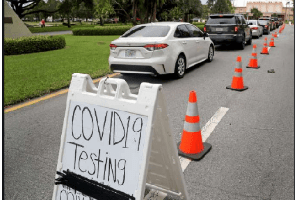International Day Against Drug Abuse And Illicit Trafficking 2009: A Message From The CARICOM Secretariat
GREATER GEORGETOWN, Guyana – Today, June 26, the Caribbean Community Secretariat joins the rest of the world in commemorating International Day against Drug Abuse and Illicit Trafficking under the theme: Do drugs control your life? Your life. Your community. No place for drugs. Indeed, the theme is quite apt as it reflects the extent to which both the international and Caribbean Community have been scathed by the destructive effects of illicit drugs.
The focus this year is on drug trafficking and the targeted population, youth. We are told that for the most part, our young people enjoy good health, however, there are others, we know, who daily face challenges which in some cases have led to feelings of hopelessness and despair. Teenagers and young adults are particularly vulnerable to using illicit drugs. The prevalence of drug use among young people is more than twice as high as that among the general population. At this age, peer pressure to experiment with illicit drugs can be strong and self-esteem is often low. Also, those who take drugs tend to be either misinformed or insufficiently aware of the health risks involved.
We are also mindful that global recession which has led to shrinking job markets; rising cost of living; increased crime and violence associated with the illicit drug trade have negatively impacted the region’s economy as well as challenged the ability of parents to provide for their families.
Young people who have invested time and energy in getting a degree, diploma or a skills training certificate expect after graduation or completion of their programme of study to be gainfully employed. Unfortunately, this has not been the reality for many.
Faced with economic hardship, it can be very tempting to lose focus and give in to the temptation to use drugs as a means of escaping from problems or become involved in trafficking of illicit drugs to meet their needs. For those who see drug trafficking as a means of earning ‘quick and easy money’ there is nothing quick or easy about drug trafficking when one considers the consequences.
Data on trafficking to, and arrest in the UK show that there are over 11, 000 foreign males in UK prisons and that approximately 35% are on drug related charges. 10% are from the region. In the case of female, 70% of the 1000 foreign females in UK prisons are on drug related charges. 35% are from the region. Many others do not even leave airports here in the Caribbean. They were either detained or died from the drugs they swallowed.
Young people are our greatest assets. Their exploits in academia, sports, culture and service to our Community have made us proud as a region. It was in recognition and acknowledgement of their value for sustained regional development, that our Heads of Government in 2006 mandated the establishment of the CARICOM Commission on Youth Development to conduct a comprehensive situation analysis of youth within the CARICOM Single Market and Economy and to make recommendation for their empowerment to participate fully in the CSME.
The Commission, which was launched in 2007 by Lead Head of Government for Culture, Youth and Community Development, HE Runaldo Ronald Venetiaan, President of Suriname, has engaged over 3000 youth in discussions about their dreams, vision and aspiration; issues of youth governance; youth role within the CSME and, through their own voices, the risks and vulnerabilities they face on a daily basis.
Later this year, a special meeting of CARICOM Heads of Government is scheduled to be convened to take the dialogue a step further to find, and implement, solutions to the challenges encountered by young people.
At the policy level, the Secretariat has made a case for a change in dealing with substance abuse and illicit trafficking by recognising that the supply of, and demand for illicit drugs are inextricably linked, and accepting that any meaningful, sustained results must address this phenomenon as a whole and not as two unrelated issues.
The CARICOM Secretariat has also forged partnerships with several international organisations and Third States including the European Union to devise initiatives to deal with both treatment and prevention for substance abusers.
One such partnership was forged with the Inter-American Drug Abuse Control Commission of the Organization of American States (CICAD/OAS). It has spawned the development of a Drug Demand Reduction Strategy, under which several initiatives have been successfully implemented. These initiatives to reduce the demand for illicit drugs and treatment of substance abusers are being strengthened by in-country technical support to Member States provided through the Technical Advisory Body for the Regional Drug Demand Reduction Strategy (RDDRS).
The Secretariat joins the United Nations in raising awareness of the major problem that illicit drugs represent to society and especially to young people. We also applaud the National Councils of Drug Abuse as well as NGOs and other drug abuse service providers across the Community, whose untiring efforts continue to inspire our young people against substance abuse and mobilize support for drug prevention and control.
We charge young people to remember: This is your life; Your Community. No place for drugs.

